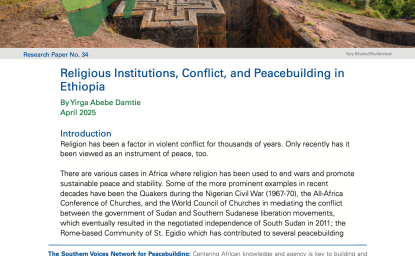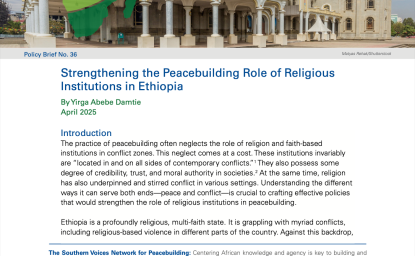U
nited States security engagements in West Africa cannot be understood without consideration of regional geopolitical challenges spanning political instability, climate change, humanitarian and food crises, extremist attacks, and the emergence of new actors.
Recent geopolitical shifts in West Africa are marked by the rapid decline of French influence–including the expulsion of French troops from Mali, Burkina Faso, and Niger–along with the departure of US military personnel from Niger. Both instances came at the request of these countries’ new military leadership, which, soon after, accepted Russian security assistance and military cooperation. The rising military and economic influence of middle and emerging powers in the region is further complicating the deep regional insecurity and instability.
The Central Sahel continued to experience high levels of violence in 2024. These conflicts increasingly present a threat of a spillover into coastal West Africa, partially due to the security vacuum created by the exit of US and French military personnel. Although the United States is taking steps to prevent instability in the Sahel, in part through a ten-year partnership program for coastal West Africa—the Strategy to Prevent Conflict and Promote Stability—, the security implications of their previous departure cannot be overlooked.
Furthermore, Mali, Burkina Faso, and Niger’s withdrawal from the Economic Community of West African States (ECOWAS) creates additional challenges to regional security. Since the three countries (the Alliance of Sahel States—AES) started the withdrawal process, ECOWAS has left the door open for negotiations. Most recently, while accepting their decision to withdraw, ECOWAS extended the withdrawal timeline from January to July 2025, within which time the AES countries can apply for re-admission. So far, however, the three countries have stuck to their guns.
The trends in 2024 of increasing middle and emerging power security assistance in the region, the drawdown of US and French troops, and the fracturing of regional cooperation mechanisms pose a serious threat to US security cooperation in the region. Given the current context, the United States needs to do more to support African-led efforts to strengthen ECOWAS’ relevance, capacity, and legitimacy in the face of its waning influence in the region. Over five decades, ECOWAS has provided a forum for conflict prevention, stability, and security in the region. However, the institution needs reform in order to engage the AES states through systematic mediation.
A clear starting point is for ECOWAS, with international and intraregional support, to radically reform its peace and security mechanisms to be more people-centered and inclusive. In this regard, building security and peace will require partners, such as the United States, to restructure security engagements at the national and bilateral levels to be more inclusive and developmental while recognizing the agency of its African partners.
Author


Africa Program
The Africa Program works to address the most critical issues facing Africa and US-Africa relations, build mutually beneficial US-Africa relations, and enhance knowledge and understanding about Africa in the United States. The Program achieves its mission through in-depth research and analyses, public discussion, working groups, and briefings that bring together policymakers, practitioners, and subject matter experts to analyze and offer practical options for tackling key challenges in Africa and in US-Africa relations. Read more

Explore More
Browse Insights & Analysis
Religious Institutions, Conflict, and Peacebuilding in Ethiopia

Spying on Poachers

